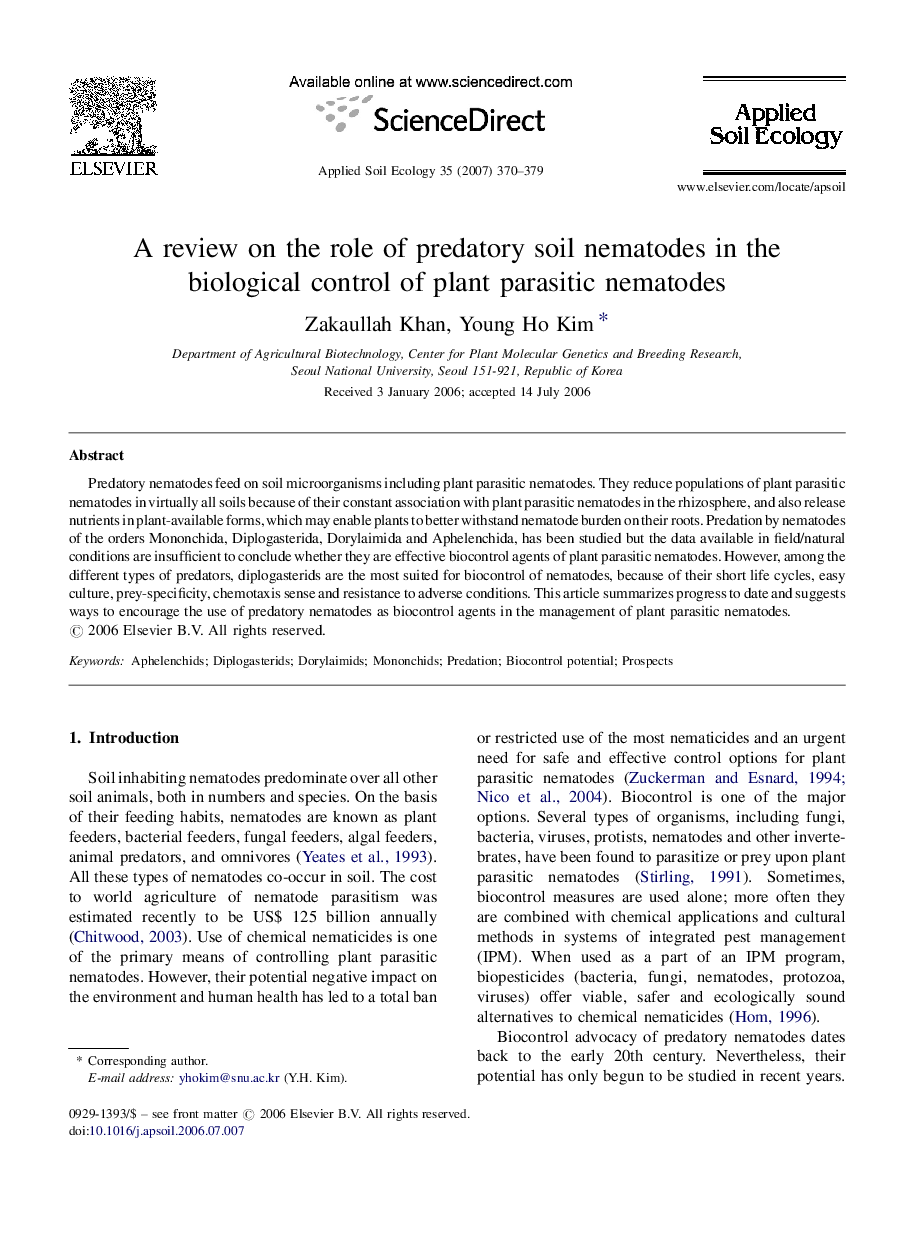| Article ID | Journal | Published Year | Pages | File Type |
|---|---|---|---|---|
| 4383366 | Applied Soil Ecology | 2007 | 10 Pages |
Predatory nematodes feed on soil microorganisms including plant parasitic nematodes. They reduce populations of plant parasitic nematodes in virtually all soils because of their constant association with plant parasitic nematodes in the rhizosphere, and also release nutrients in plant-available forms, which may enable plants to better withstand nematode burden on their roots. Predation by nematodes of the orders Mononchida, Diplogasterida, Dorylaimida and Aphelenchida, has been studied but the data available in field/natural conditions are insufficient to conclude whether they are effective biocontrol agents of plant parasitic nematodes. However, among the different types of predators, diplogasterids are the most suited for biocontrol of nematodes, because of their short life cycles, easy culture, prey-specificity, chemotaxis sense and resistance to adverse conditions. This article summarizes progress to date and suggests ways to encourage the use of predatory nematodes as biocontrol agents in the management of plant parasitic nematodes.
